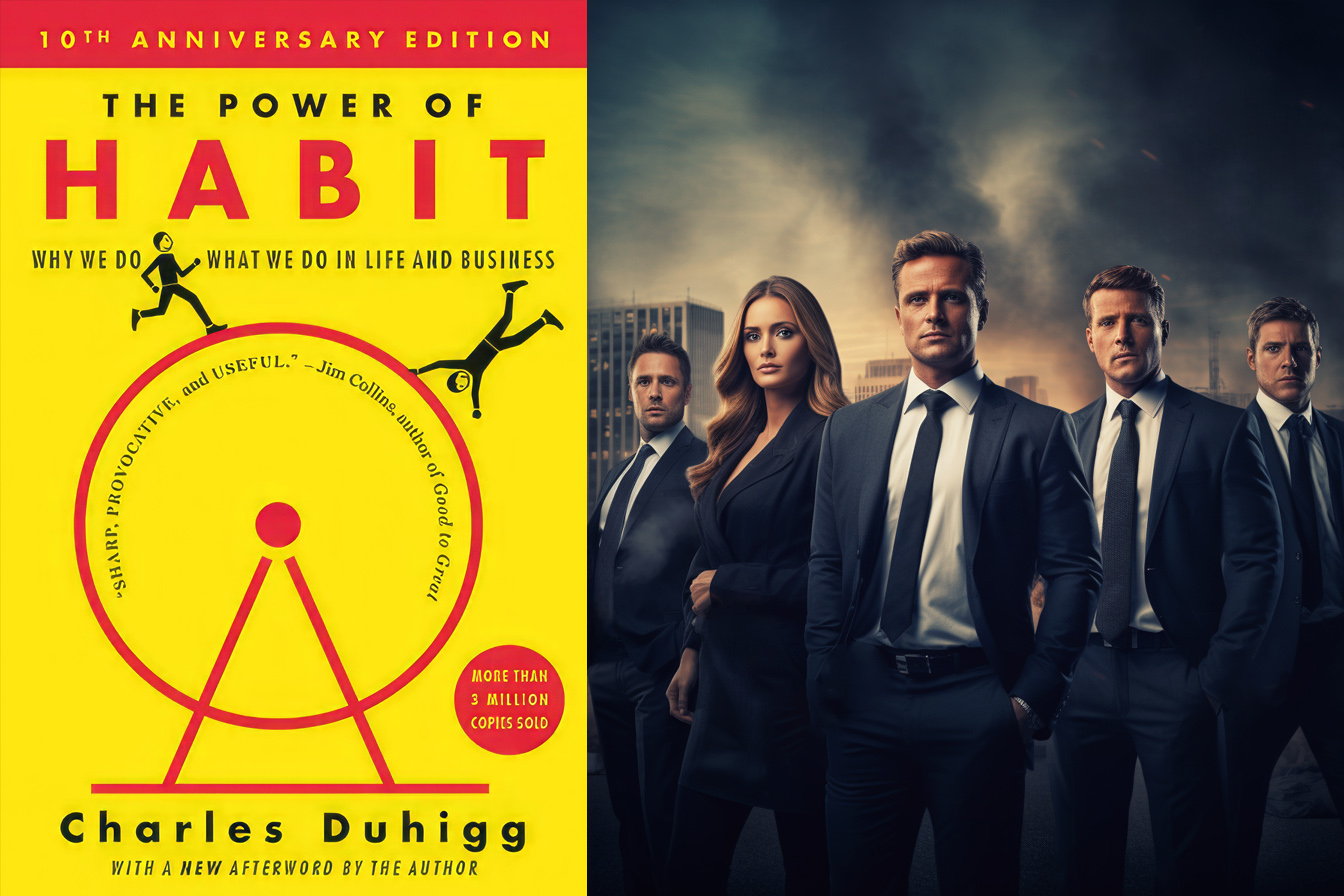As we navigate the labyrinth of life, we often seek a roadmap – a guide that helps us better understand ourselves and the world around us. Enter Charles Duhigg’s “The Power of Habit,” a book that demystifies the patterns that shape our lives – our habits. Duhigg, a Pulitzer Prize-winning reporter with a knack for distilling complex concepts into accessible insights, delves into the fascinating science of habit formation and modification in this groundbreaking work.
The book, woven with rich narratives and scientifically-backed information, implores us to understand the value of habits in our lives. With a firm focus on the power of the ‘Habit Loop,’ Duhigg throws light on how habits operate at an individual and organizational level. But the value of this work extends beyond just understanding habits. Duhigg teaches us the practical art of habit change, ultimately empowering us with tools to transform our lives.
Summary of the Book
Duhigg presents the concept of the ‘Habit Loop,’ a cycle that comprises a cue, a routine, and a reward. According to him, this loop is the cornerstone of all habit formation. He then takes readers on a journey, examining personal and corporate habits. His narratives range from individual stories of habit change to tales of corporations leveraging habits for organizational success. The book concludes with the ‘Golden Rule of Habit Change,’ which provides readers with a roadmap for changing detrimental habits into positive ones.
Strengths of the Book
Duhigg masterfully blends anecdotal case studies with scientific research to substantiate his arguments. His writing style, though insightful, remains accessible, breaking down complex ideas into easily digestible pieces. The practical steps for implementing habit changes offer immense value to the reader.
Areas of Improvement
Despite its strengths, the book is not without its flaws. At times, Duhigg oversimplifies complex human behaviors, perhaps in an attempt to make them easily understood. Furthermore, the book primarily focuses on success stories, which may not encapsulate all possible experiences of habit change.
Impact on Readers and Society
“The Power of Habit” has contributed significantly to our understanding of human behavior. It has found its place in popular psychology and within the self-help genre, offering practical advice that readers can apply to their lives.
Personal Opinions
Personally, “The Power of Habit” has been enlightening. It opens doors to a new level of self-understanding and presents us with tools for meaningful change. I recommend this book to anyone interested in understanding the human psyche or seeking to make positive changes in their life.
Key Insights and Takeaways
Duhigg does not merely describe habits; he unveils their immense power. He teaches us that habits are not just patterns but our life’s architecture. By harnessing this power, we can engineer personal growth and corporate success.
- Understanding the Habit Loop: Habits work in a three-step process – cue, routine, and reward. Recognizing this cycle is the first step in understanding and modifying habits.
- Habits Influence Life: Habits are not mere routines but profoundly shape our lives and behaviors. They are, as Duhigg puts it, our life’s architecture.
- We Can Change Habits: No matter how deep-seated, Habits can be changed. Duhigg lays out strategies for habit change, showing us that change is always within our grasp.
- Golden Rule of Habit Change: One of the most significant takeaways is the ‘Golden Rule of Habit Change,’ which teaches us to identify undesirable routines and replace them with better ones while keeping the cue and reward the same.
- Habits and Success: Duhigg makes a compelling case that personal and professional success is often tied to our habits. By modifying habits, we can improve our productivity and effectiveness.
- Habits in Organizations: Habits are not confined to individuals; they permeate organizations too. Understanding and influencing these habits can lead to organizational transformation.
- Keystone Habits: Some habits, called ‘keystone habits,’ can trigger widespread changes. Identifying and changing these habits can ripple effects on other aspects of our lives.
- Habits and Free Will: While habits are automatic, they don’t usurp our free will. We always have the choice and the power to change them.
- Cravings Drive Habits: Cravings are at the core of habit formation. The anticipation of reward creates a craving, which drives us to act out the routine.
- Habits and Identity: Our habits are closely tied to our identities. By changing our habits, we can also change our self-perception and how others perceive us.
Conclusion
In conclusion, Charles Duhigg’s “The Power of Habit” is more than a book; it’s a guide that can illuminate the path toward personal and organizational improvement. It brings to the fore the importance of understanding our habits and offers us the tools to change them. While the book may not cover every facet of human behavior, its insights into habit formation and change are invaluable.
Ultimately, “The Power of Habit” explores human potential. It illustrates how, by understanding and modifying our habits, we can bring about profound transformations in our lives. It’s a map, a tool, and a companion on the journey toward a better understanding of ourselves and the world around us. As such, it doesn’t just occupy a place on our bookshelves; it finds its way into our lives and thoughts, sparking changes that ripple into every corner of our existence.
“The Power of Habit” serves as a reminder that we are not just products of our habits but also their architects. And in this capacity, we can reshape our lives, one habit at a time.
Duhigg’s enlightening exploration of the subject makes “The Power of Habit” a worthy addition to anyone’s reading list. Whether you are a psychologist, a leader, an aspiring self-helper, or simply a curious reader, this book offers valuable insights, practical advice, and perhaps the impetus you need to set the wheels of positive change in motion.
